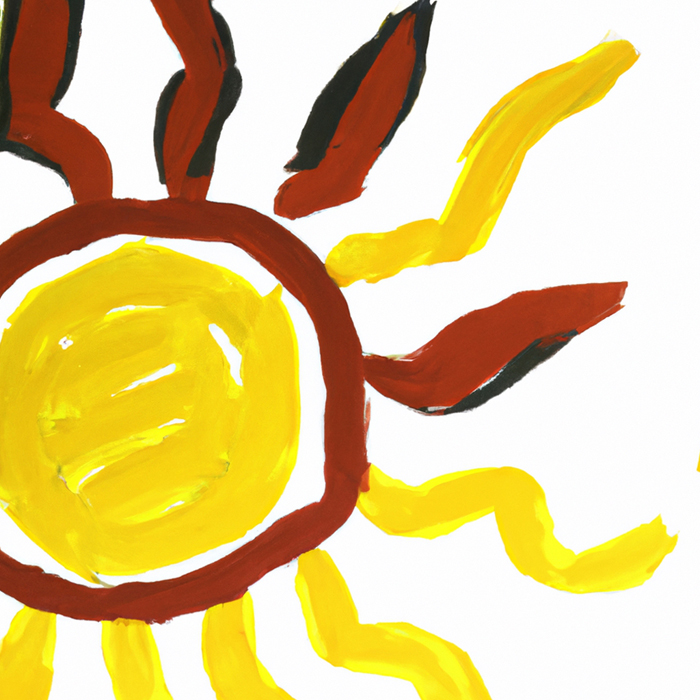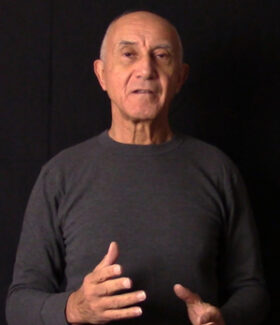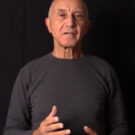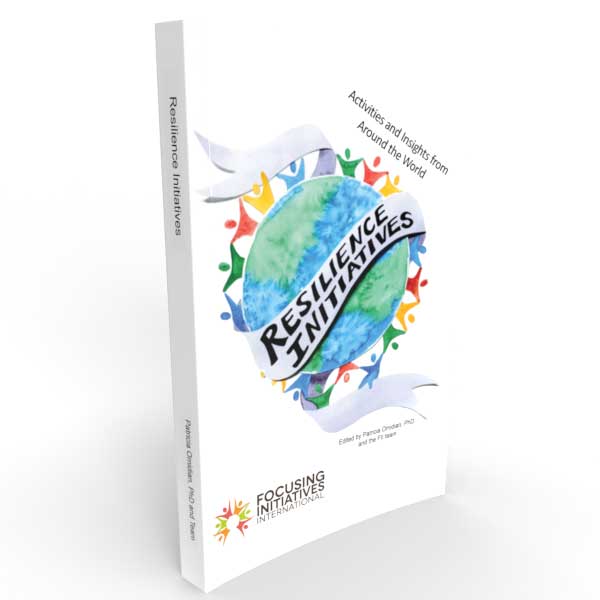WHEN
Part 2: February 08, 2024, 12:00 - 2:30pm ET
Part 3: March 14, 2024, 12:00 - 2:30pm ET
Part 4: April 11, 2024, 12:00 - 2:30pm ET
Part 5: May 09, 2024, 12:00 - 2:30pm ET
Part 6: June 13, 2024, 12:00 - 2:30pm ET
Register Now
TUITION
$1,050 if you pay in 2 installments, or $990 if you pay in full.
TRAINERS & SPEAKERS

Focusing is based on our ability to experience and process a bodily felt sense. This course describes what makes this possible, how it relates to fostering therapeutic change, and how to apply it effectively in therapy.
The Sunflower Mind metaphor reflects a focus on interaction, as opposed to one-person psychology. It is consistent with the neuroscience conception of the mind as an embodied relational process.
The course is a highly experiential integration of clinical practice with neuroscience and somatic psychology, especially the Polyvagal Theory and an embodied approach to trauma.
We will explore the physicality of our relational patterns, and how to harness the transformative power of creatively working with embodied experience.
This course is suitable for experienced Focusers as well as beginners. If you don’t know Focusing, you will get a short introduction to Focusing.
In addition to our sessions together as a group, you will be assigned to ongoing Focusing partnerships between sessions.
Before each class, you will receive study material (video lecture and/or PDF) to prepare for the session.
Why this course?
Learning Focusing is very different from learning something neutral, such as how to use a new app on your phone. Focusing is not neutral. It’s a direct line to what is most vital in you.
So, we are not approaching this course as a way to learn techniques. We are approaching it as a way of deepening your sense of connection: to yourself (inner connection), and to others (interconnection).
Focusing is a deeply personal process. You get better at Focusing as you use it to get to know yourself better. As a by-product of this exploration, you will gain a deeper understanding of Focusing.
Each time you do Focusing, it changes you. What happens is what we call a felt shift.
Sometimes, the change is really big and hard to miss. Much of the time, it is very subtle. If you keep looking for really big changes, you may not notice the smaller ones. This is why you practice turning your attention inside, to sense the felt shift when it happens.
Something shifts as your organism responds to the situation, and you become aware of this shift. First, in a fuzzy way. And then, it comes into focus (which is why we call this Focusing).
So, every time you do Focusing, something changes. You experience insight as a visceral response, not just an abstract idea. You are moved to action. This is what makes Focusing action-oriented.
Over time, the practice of Focusing makes you more and more intimate with how you implicitly respond to life. Organically, you become more engaged with what life presents you with.
These changes are not just mental activity. They involve your whole organism. I like to describe Focusing as an Active Pause, or as action-oriented contemplation. The word “contemplation” captures the quality of being present with the situation and sensing how your whole organism is affected by it.
This course is for the general public. If you’re a therapist, you might be interested in experiential courses that combines exploring the personal process of change with professional training.
Free introductory session & Q & A
Thursday December 7 at 12:00 pm New York time. Register to get Zoom link and recorded video of the session.
Why this instructor?

Over the years, he has been exploring the similarities and differences between different approaches to better understand how change happens. He has conducted over 200 interviews with therapists, Focusers, researchers, and mindfulness practitioners.
Serge has led workshops in a variety of venues and conferences, such as Focusing, Somatic Experiencing, USABP, etc. He fosters a safe and stimulating space for groups to creatively explore our embodied process.
Curriculum
1. Embodied relationality
Conceptual learning: The physicality of felt experience, Reichian character styles, Polyvagal Theory, neuroception, and felt sense.
Clinical skills: Paying attention to the biological energy that emerges from interaction. Inhabiting the polyvagal self-states.
2. Two modes of attention: Focused and unfocused attention
Conceptual learning: Iain McGilchrist work on the Divided Brain.
Clinical skills: Inhabiting the state of focused attention, and the state of unfocused attention.
3. Relational implicit & embodied object relations
Conceptual learning: The conceptual layers that affect felt experience
Clinical skills: Literally “touching” the relational implicit (a protocol to direct the client’s attention away from purely conceptual and onto embodied experience)
4. Seeing embodied patterns
Conceptual learning: How the embodied patterns become visible.
Clinical skills: Recognize and embody patterns to help clients see them.
5. From oppression to liberation
Conceptual learning: Working with the energy embedded in embodied patterns to allow them to carry forward.
Clinical skills: Embodying the future self that is implicit in the present moment.
6. The orienting response to threat
Conceptual learning: The phases of the threat response, the context of bottom-up processes.
Clinical skills: Deconstructing what created the patterns.
Practical details
You can take this course on its own or as one of the 4 courses of the Integrative Focusing Therapy training program, leading to certification as a Focusing-Oriented Therapist (FOT).
The live part of this course consists of 6 monthly online 2 1/2-hour sessions. Each live session includes a Q&A on the topic of the session, an experiential exploration of what it means to you, and an experiential application to therapy. We may use demos, as well as creative forms such as role-playing a client’s situation, or rotating therapists within the same session with a “client.”
Before each session, you have a video and/or reading about the Focusing theme of the session (plan on 30 to 60 minutes of study per session for the required material, more for optional material).
Between sessions, you have at least 2 study groups per month (preferably 3 if you can), where you practice the skills discussed at the previous session. You will be assigned to a small group in the first session of the course.
In addition to the 6 full-class sessions, each trainee will participate in a 90-minute small group session with Serge for feedback on their individual skills and how to improve them.
Of course, in this course as in all others, we pay utmost attention to fostering a sense of safety and connection.
This is a highly experiential course. You are not passively attending classes, you are learning by participating and being seen. It is expected that you will attend every session of the course. We understand that life can be unpredictable, and we allow for one missed session (which you must make up with class recordings).
Dates

The next cohort will start on January 11, 2024:
– Second Thursday of the month (1/11/24, 2/8/24, 3/14/24, 4/11/24, 5/9/24, 6/13/24)
– At a time convenient for people in many time zones (12 noon to 2:30 pm New York time).
This course will also be offered in January 2025:
– Second Thursday of the month (1/9/25, 2/13/25, 3/13/25, 4/10/25, 5/8/25, 6/12/25)
– At a time convenient for people in many time zones (12 noon to 2:30 pm New York time).

